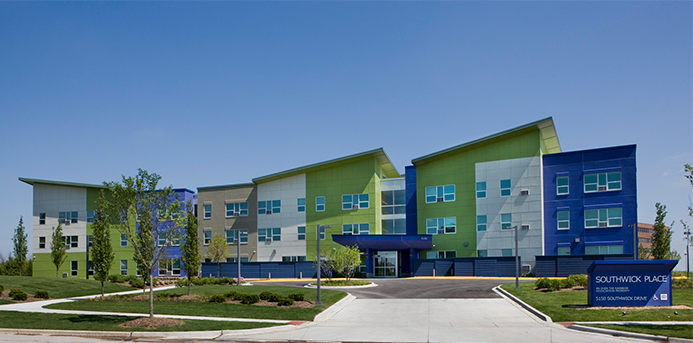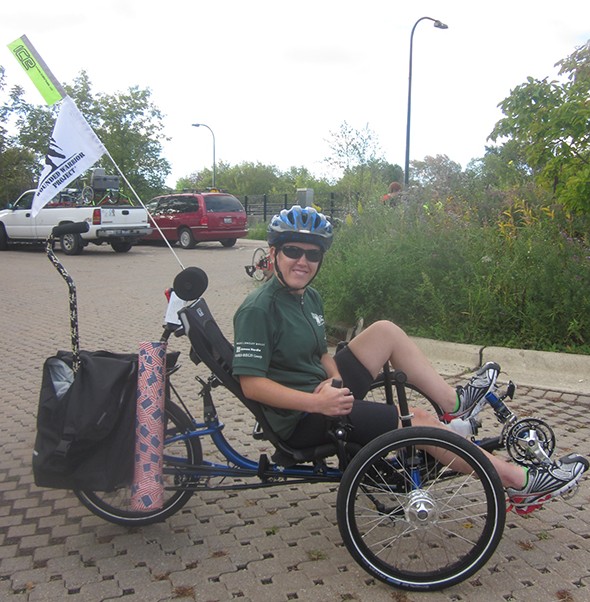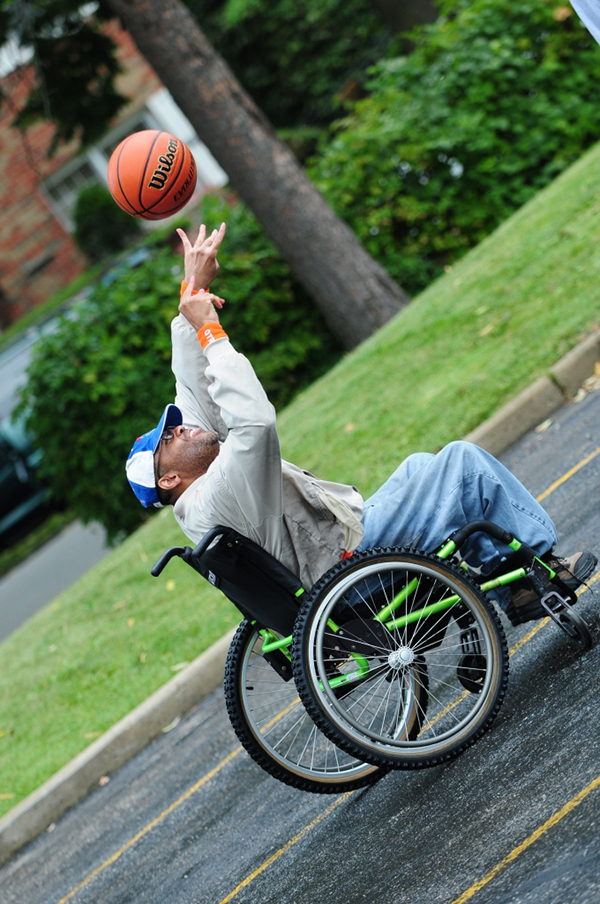At 36, Leo Kirwin’s life was clicking on all cylinders. An active outdoorsman, he filled his leisure hours with snow or water skiing, scuba diving, running and camping. Professionally, he’d transitioned from his management position at Motorola to the physical work of residential and restaurant construction. Tall, athletic, smart and congenial, Leo was “single and loving it.”
A deer in the road changed everything. Kirwin swerved his car to avoid hitting the animal, and ended up causing a devastating accident that left him with a broken neck and back.
Since that fateful day in 1995, Kirwin has been paralyzed and confined to a wheelchair.
“I went from having this great life to being disabled and not knowing what my future was going to be,” he says.
A Land That I Heard Of . . .
After months at the Rehabilitation Institute of Chicago, followed by an extended stay with family (“I hadn’t lived in my mother’s house for 20 years!” Kirwin says), he learned about the Over the Rainbow Association (OTR), an Evanston-based nonprofit focused on providing affordable, barrier-free apartments for people with physical disabilities arising from illnesses such as cerebral palsy, muscular dystrophy, spina bifida and multiple sclerosis, or from car accidents, stroke or war injuries.
“There are thousands of people like Leo trapped in homes that are not wheelchair accessible,” says Over the Rainbow Executive Director Eric Huffman. “We want to be bigger. So few people have heard of us, and yet we’re the biggest housing provider for people with physical disabilities in Illinois.”
OTR owns and operates nine Illinois properties, with a total of 219 units (two more properties are in process) for low-income adults who, because of their physical limitations, have difficulty getting jobs. Ideally, Huffman would like to put up one new building per year, but the current pace is closer to one every two years. OTR relies on a variety of federal funding programs, many of which have been slashed, to get projects initiated.
“The easy part is putting the building up,” Huffman explains. “The financing is the hard part.”
That is surprising and unfortunate, given that a single-person OTR apartment costs taxpayers about $33,000 versus a similar unit in a state-funded nursing home, which costs $143,000, according to OTR documents.
A Dream That You Dare to Dream . . .
Katie Miglore, Over the Rainbow’s director of resident services, teaches residents the skills they need to enjoy self-sufficiency, which is a critical component of OTR’s mission.
“Isolation prevention is our number one priority,” Miglore says. “I work with residents on everything from filling out forms, helping find a local doctor, teaching how to manage a budget. We had an adaptive knitting class – whatever residents need to be independent.”
Freedom is the great allure of OTR housing. “People come and go when and where they want to,” Miglore says. “We put them in touch with paratransit, they do errands in Evanston, they take the El into the city. This is their community.”
Where You’ll Find Me . . .
Since moving to OTR’s Hill Arboretum apartments in 1996, Kirwin’s passion for life got a reboot.
“I didn’t want to just sit around watching soap operas,” he says. “I have a college degree. I came in with a lot of gifts.”
Initially, Kirwin put his talents to use working with OTR’s property managers to update databases. Over the years, he’s served as OTR’s liaison with HUD and as the organization’s director of operations. In 1998, he was named to OTR’s Board of Directors, and in 2006 became the chairman. Now retired and settled into his role as chairman emeritus, Kirwin is an OTR ambassador. He speaks publicly on behalf of the organization and helps newcomers to Hill Arboretum.
“One guy, he was like a flower, all closed,” Kirwin recalls. “Over time, he got to know people, started coming out of his apartment, opened up.”
Interestingly, during Kirwin’s high school and college years, he taught people with physical and mental disabilities how to camp.
“I was in it long before I was in it,” he says.
For more information about Over the Rainbow and its upcoming fundraising events, go to otrassn.org.
More from Make It Better



